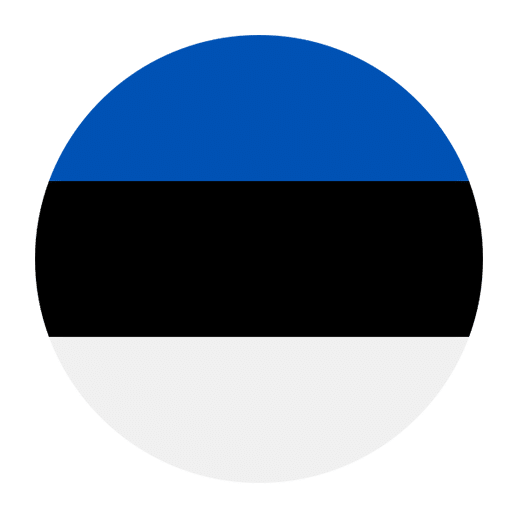Estonian Language Day, known as “Eesti keele päev” in Estonian, is a day dedicated to celebrating the richness and uniqueness of the Estonian language. Observed annually on March 14th, it is a day when Estonians and language enthusiasts around the world come together to appreciate and promote this lesser-known but fascinating language. In this article, we will explore the significance of Estonian Language Day, the events and traditions associated with it, and how language learners can participate in the celebrations.
The Significance of Estonian Language Day
Estonian Language Day is celebrated on the birthday of Kristjan Jaak Peterson, a seminal figure in Estonian literature and one of the pioneers of written Estonian. Born in 1801, Peterson’s works and advocacy played a crucial role in shaping the literary landscape of Estonia. His poetry and prose highlighted the beauty and potential of the Estonian language at a time when it was underrepresented in literature and academia.
The day is not just about honoring Peterson but also about recognizing the resilience and evolution of the Estonian language. Over the centuries, Estonian has faced numerous challenges, including periods of foreign rule and efforts to suppress it. Despite these obstacles, it has thrived and continues to be a vibrant part of Estonia’s cultural identity.
Estonian Language: A Brief Overview
Before delving into the celebrations, it’s essential to understand what makes the Estonian language unique. Estonian is part of the Finno-Ugric language family, which includes Finnish and Hungarian. Unlike most European languages, it is not Indo-European, making its structure and vocabulary quite distinct.
Some key features of Estonian include:
– **Agglutination**: Words are formed by adding various suffixes to a root, which can result in long and complex word forms.
– **Vowel Harmony**: Similar to Finnish, Estonian words often have a harmonious vowel structure where certain vowels cannot appear in the same word.
– **No Gender**: Estonian does not have grammatical gender, simplifying some aspects of language learning.
Events and Traditions
Estonian Language Day is marked by a variety of events and traditions that celebrate the language’s heritage and promote its use. Here are some of the key activities:
1. Literary Readings and Poetry Recitals
One of the most popular ways to celebrate Estonian Language Day is through literary readings and poetry recitals. Schools, libraries, and cultural centers across Estonia host events where people read from the works of Estonian authors, both classic and contemporary. These readings often include the poems of Kristjan Jaak Peterson, whose legacy is central to the day’s celebrations.
These events provide an excellent opportunity for language learners to immerse themselves in the rhythm and melody of Estonian. Listening to native speakers read can help learners understand pronunciation, intonation, and the expressive capabilities of the language.
2. Language Workshops and Classes
Many institutions offer special language workshops and classes on Estonian Language Day. These sessions are designed for various proficiency levels, from beginners to advanced speakers. Workshops may focus on different aspects of the language, such as grammar, vocabulary, pronunciation, and conversational skills.
For language learners, these workshops are invaluable. They provide a structured environment to practice speaking and listening, as well as to ask questions and receive feedback from experienced instructors.
3. Cultural Performances
Estonian Language Day often features cultural performances that showcase the country’s rich traditions. These can include folk music, dance, and theater performances, all conducted in Estonian. These events highlight the deep connection between the language and Estonian culture.
Attending these performances can be a delightful way to experience the language in a cultural context. Language learners can enjoy the artistic expressions while picking up new words and phrases.
4. Public Lectures and Discussions
Universities and cultural institutions frequently organize public lectures and discussions on topics related to the Estonian language. These can cover a wide range of subjects, including the history of the language, its linguistic features, its role in society, and its future.
For those interested in the academic and cultural aspects of language learning, these lectures provide deep insights and broaden one’s understanding of Estonian. They also offer opportunities to engage with experts and fellow enthusiasts.
5. Competitions and Contests
To engage younger audiences and encourage active participation, many schools and organizations hold competitions and contests. These can include poetry writing, essay contests, spelling bees, and language quizzes. Such activities foster a sense of community and excitement around the language.
Language learners can participate in these contests to test their knowledge and skills. Even if one doesn’t win, the experience can be both educational and enjoyable.
6. Media and Broadcasting
On Estonian Language Day, media outlets, including television and radio stations, often feature special programming related to the language. This can include documentaries, interviews with linguists and authors, and broadcasts of literary readings.
Tuning into these programs can be an excellent way for language learners to practice listening comprehension and to hear the language used in various contexts.
How Language Learners Can Participate
Celebrating Estonian Language Day as a language learner can be an enriching experience. Here are some ways you can get involved, even if you’re not in Estonia:
1. Join Online Events
In today’s digital age, many events are streamed online. Look for virtual literary readings, workshops, and lectures that you can join from anywhere in the world. Participating in these events can provide you with a sense of connection to the global community of Estonian speakers and learners.
2. Read Estonian Literature
Dive into Estonian literature by reading works by famous Estonian authors. If you’re a beginner, start with simpler texts or bilingual editions. For more advanced learners, challenge yourself with original poetry and prose. Authors to explore include Kristjan Jaak Peterson, Jaan Kross, and Anton Hansen Tammsaare.
3. Practice Speaking
If you have access to a language exchange partner or a tutor, use Estonian Language Day as an opportunity to practice speaking. Discuss the significance of the day, share your favorite Estonian poems, or simply have a conversation in Estonian.
4. Learn About Estonian Culture
Language and culture are deeply intertwined. Take some time to learn about Estonian traditions, music, and history. Understanding the cultural context can enhance your appreciation of the language.
5. Participate in Social Media Campaigns
Many organizations run social media campaigns to celebrate Estonian Language Day. Join the conversation by sharing your experiences with learning Estonian, posting your favorite Estonian words or phrases, and connecting with other learners and speakers.
6. Watch Estonian Films and Listen to Music
Immerse yourself in the language by watching Estonian films and listening to Estonian music. This can help improve your listening skills and expose you to different dialects and accents.
7. Write in Estonian
Try your hand at writing in Estonian. Whether it’s a short poem, a diary entry, or a letter to a friend, writing can help reinforce your learning and improve your language skills.
Conclusion
Estonian Language Day is a wonderful opportunity to celebrate a unique and beautiful language. For language learners, it offers a chance to immerse oneself in the language and culture of Estonia. By participating in events, exploring literature, and engaging with the community, learners can deepen their understanding and appreciation of Estonian.
As you celebrate Estonian Language Day, remember that language learning is not just about memorizing words and rules. It’s about connecting with a culture, understanding its history, and experiencing its beauty. Whether you’re a beginner or an advanced learner, take this day to celebrate your journey with the Estonian language and to look forward to the many discoveries yet to come.

